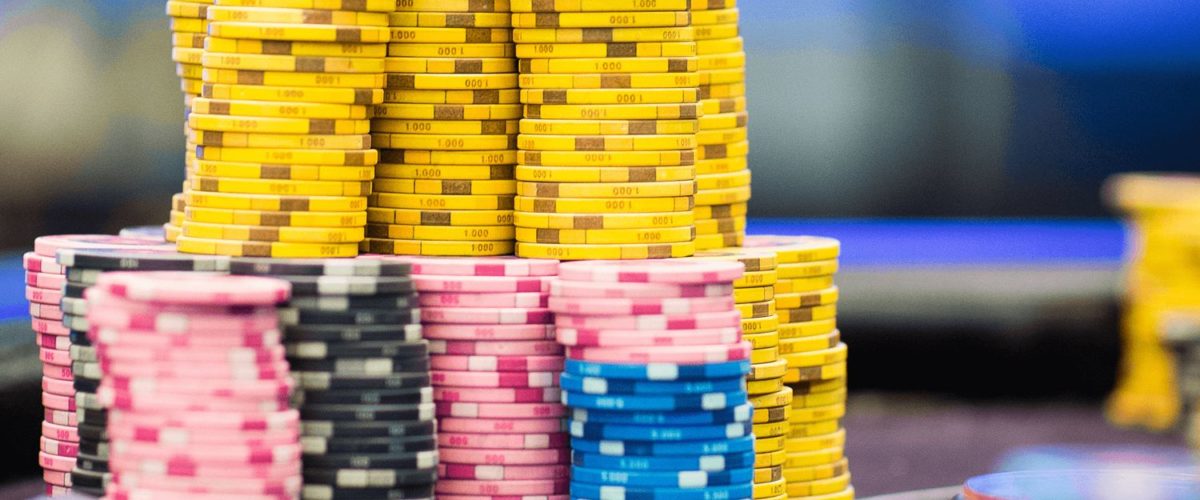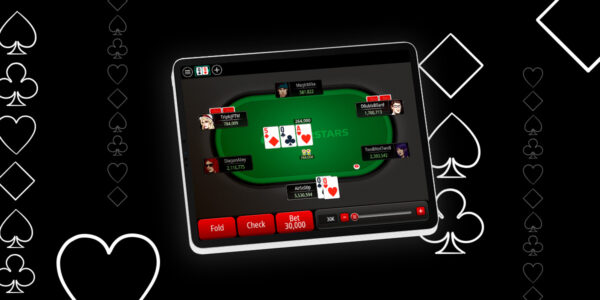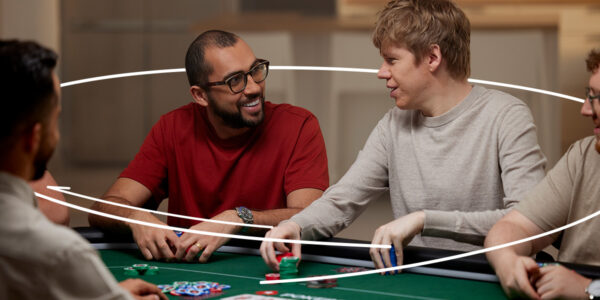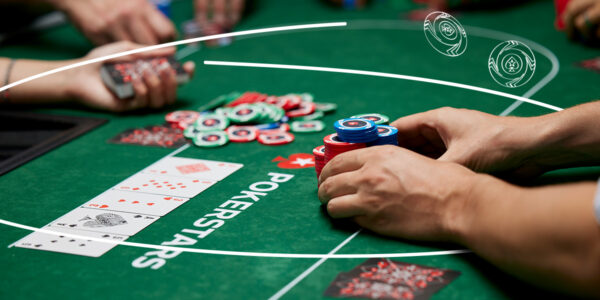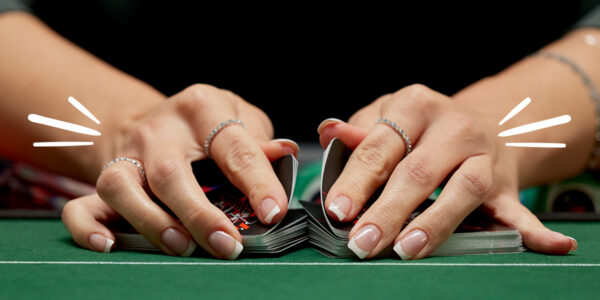How to Adapt to Having a Big Stack in Tournaments
Having a big stack in a tournament is always advantageous. We know this intuitively, and we hear it routinely in the form of random comments such as “Having the big stack leaves you more room to maneuver”, “more space to be creative”, “more ability to apply pressure”, and “more room for patience”, among other things. But what do these things really mean, and how do we put all that into a reasonable action plan? Let’s take a look at some things to consider.
Do our opponents know how we obtained our big stack? If they do, it makes sense to incorporate this knowledge into our strategy. Have we been playing tight, but got the chips in a cooler like set over set? With a tight image, we may be able to steal more effectively with raises and reraises. We’re we playing loose-aggressive, and hit a freak hand with some moderate holding? Bluffing will be more difficult. Of course, this can only be a factor for players who were present… once we are moved to a new table, they won’t know how we got all those chips, just that we have them.

Exercise patience. To be clear, patience doesn’t mean waiting for premium hands. What I mean here is that it’s not our personal mission to run over the table now that we have a big stack. It’s not our personal charge to confront shorter stacks who’ve moved in with marginal calls. We can still be looking to pick our spots, attacking spots where we deem fold equity is high, and of course our stronger hands simply for value.
Maintain your self-control. It’s natural to want to start attacking on a big stack, as there’s no immediate pressure on your tournament life while there usually is on your opponents, particularly the short and medium stacks. Don’t let that natural feeling blind you to the perils of getting over-aggressive. The worst thing that can happen is for your big stack to turn into a small stack. The easiest for that to happen is to bluff off your chips.
Now let’s take a look at a few things we should look to do with all these chips:
Increase our preflop opening ranges. Any time players are our table will allow us to get away with opening wider and picking up more small pots, it’s a good idea for us to shift into that gear to take advantage of it. When we have a big stack, players are naturally more reluctant to tangle with us as their tournament life may be on the line.
Be a bit more protective post flop. While it can work to our advantage to open up our preflop ranges a bit for the reasons discussed above, an often overlooked aspect of that effect is when players do get involved with us, they will often have a bit stronger ranges and also be proceeding with stronger post flop ranges as well. This is why it’s so important not to lose our self-control and start bluffing/bullying wildly. Attack and stab, but when you get resistance, protect your valuable stack.
Pressure small and medium stacks. If they are wrong, they are on the rail. That’s a powerful threat.

Apply pressure on key bubbles. The biggest bubbles are the money bubble (going from zero to something tangible), and the final table bubble. With the big stack we can open liberally on bubbles as some players will simply be waiting for that bubble to burst and folding all but the strongest hands. A very important note to this however: While it’s ok to open liberally, we should generally not be calling raises from medium stacks with weak or marginal holdings as they will usually be opening only stronger hands in bubble situations.
Pay attention to effective stack size. Remember, we may have 80 big blinds, but if we’re opening on the button into a small blind with a 12bb stack and a big blind with 11 bigs, we’re playing in a shallow money situation. Don’t lose sight of this… always take note of the stack sizes still in the hand when considering getting involved.
Avoid confrontations with other big stacks. Again, to be clear, this isn’t to suggest we should just go into a shell when another big stack is in the pot. Having a lot of chips is very valuable however, and there is some merit in protecting that value. Consider it a bit like two super powers on the verge of going to war. Small skirmishes are fine, but when the big guns come out, it behooves you to have the goods.
Having a big stack in a tournament is a lot of fun! Your bets tend to carry more weight, since opponent’s tournament lives are threatened while yours is not. You can open more pots with ease, have more room to maneuver post flop in many circumstances, and have all the tools in your tool belt at your disposal. Work to keep increasing your stack, while being mindful to protect your chips when you get resistance, and we’ll see you chip leading a final table soon.
How do you adjust your game when you have the big stack at the table? Share your comments below!
Condimentum Nibh
Donec sed odio dui. Cras mattis consectetur purus sit amet fermentum. Vestibulum id ligula porta felis euismod semper. Curabitur blandit tempus porttitor.
